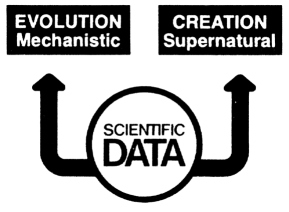Within the last decade, the whole concept of science and social science instruction has centered around the inquiry approach. Researchers have gathered data that show many satisfying spin-offs in reading, language arts, and logical thought within science and social studies. The inquiry approach centers around a presentation of data by the teacher, through reading and via experimentation. This data is then acted upon by the students from a logical framework. This, of course, means that the role of the professional teacher now takes the form of a person skilled in questioning techniques rather than a disseminator of all knowledge. Inquiry in its best context never reflects teacher bias, but rather is objective and develops logical thought and decision-making skills among students. The objectives of good instruction and inquiry will be centered around process skills, such as:
- Observation (sight, hearing, smell, etc.)
- Classification (placing information in categories)
- Inferring (general assumptions about data)
- Predicting (always done from considerable data)
- Measuring (using standards for measurement)
- Communicating (oral, written charts, graphs, etc.)
- Interpreting Data (from all aspects of the investigation: classifying, communicating, inferring, etc.)
- Making Operational Definitions (definitions that are clear and expressive of the process)
- Formulating Questions and Hypothesis (a sophisticated stage, including all he presently knows)
- Experimentation (one of the best ways of making judgments relative to a problem. Empirical knowledge)
- Formulating Models (models are temporary structures that quickly change when new information becomes available)
These skills teach young people to make critical observations when dealing with data. Are the data complete? Are they significant to the problem? Teachers cannot justify instruction that does not develop these skills, as the ramifications have broad, social, as well as scientific implications. Young people are not just naturally operational to these skills; they must be taught. Instruction, then, must come from educators who are willing to coach the student in these skills without developing a dependence upon the teacher's bias.
Some considerations brought out by the National Education Association in the publication "The Spirit of Science," were values in affective domain. These values are what educators in private and public education, K-12, as well as college, should be most concerned about, for it reflects the final product of an education system. Reflecting on these values, they are reported as follows:
- Respect for Logic
- Search for Data and Its Meaning
- Long for Knowledge and Understanding
- Consideration of Consequences
- Consideration of Premises
- Demand for Verification
- Question All Things
Values, to be sure, are not easy to evaluate or test in a paper and pencil way, but are, nevertheless, values that can become operational to young minds if they are trained through objective, unbiased inquiry. This will, in fact, develop the logical thought patterns, decision-making ability, and critical thinking that is so often missing among our high school and university graduates. We cannot escape the fact that this young person is going to be the decision-maker of the future, and we have the role of guiding him toward opportunities that will enable him to be a wise decision-maker. It is unconscionable for any educator to knowingly instill a dogmatic world view into his or her students and thus attempt to make them carbon copies, coached in their own bias. The data must be presented; the decision must be their own. What an empty mind it must be that can only regurgitate someone else's ideas.
Science should be a search for truth; however, too often we hear comments such as those stated to this writer by two of his graduate students. "I will decide what is good science for my class to consider and what is not;" "I don't care how many faults there are to evolution. I will insist that my students modify the evolution model. I will in no instance present creation as an alternative to evolution;" "Evolution is science, creation is religion, we cannot have religion in the classroom." All too often this is the rule when it comes to the manner in which teachers perceive their role in the instruction of origins in the classroom. Fortunately, this type of thinking does not prevail in the majority of cases.
Those who have been exposed to a Two-Model Approach in college methods classes are less likely to take the view expressed above, for they cherish the freedom they had to examine all data and the freedom to come to their own conclusions. Those teachers who have been exposed to severe dogmatism in their high school or college training are not likely to have such an open mind on the subject, nor are they likely to tolerate others that oppose them.

A Two-Model Approach to Origins should not include sectarian religion for the public schools; the approach should base its emphasis on the interpretation of scientific data presently available. It is conceivable, even, desirable, that sectarian schools will embellish the scientific limits of the model by making open reference to biblical history. A Two-Model Approach, in essence, is significant only when students have had an opportunity to hear, see, or read, all pertinent data on topics relating to origins. When students have had opportunity to make these observations and evaluate data from their level of understanding, then a teacher might ask them to determine which model they feel the data fits best. Educators must somehow recognize how crucial it is to train their students in objective inquiry and that non-testable dogma is, in fact, a religion of its own. The tests that we must give to determine whether any model can fit into the context of a valid scientific theory, which neither evolution nor creation can, must at least follow these criteria:
- Can it explain what has been observed?
- Can it predict what has not yet been observed?
- Can it be modified as new data emerge?
- Can it be subjected to a test of falsification?
Should we not ask our students to question theories from these criteria? It is evident that theories often become gods in the minds of many, and as such, cannot be tampered with. Evolutionary theory seems to be developing in just such a way. Students should be cautioned to hold their theories with a light hand and thus spare themselves the agony of seeing these theories fall apart before their eyes. A current example of this lies within the evolution model.
For the past 100 years or more, Darwin's ideas have become a not-to-be-challenged byword of science. Interestingly enough, there are growing amounts of data and a significant number of scientists that are beginning to feel free about challenging these ideas. There are many that question interpretations as they review this emerging data. They are now ready to look at these data in a new light and from a competing model. Questions are arising as to whether the evolution model will be able to hold the attention of the thoughtful mind for the not-too-distant future. Evolutionary dogma is facing the most difficult challenge of its life. We must, as educators, allow our young people the option of this challenge and to present them with truly a better scientific view based upon inquiry. In this respect, they can observe data and its meaning without fear of demeaning reprisal. There is no question in my mind concerning teachers that are dedicated to a student product that is capable of making rational judgments on its own, for they will welcome this view; after all, isn't this what education is all about?
The following statements have been made by biology students after completing a unit on Origins from A Two-Model Approach (conducted in the Racine, Wisconsin Public School System):
"I was on the creationist side of our debate, but I am 'in the middle of the road,' so to speak. In the modules, the lectures you gave, and in the debate, so many good arguments were given by both sides. I thought the debate was a very good way to teach and to make us want to dig up more information to prove our point. I thought it was a good way to make us think about both sides. I also thought both sides did very well in supporting their model and I think it was one of the best things we have ever done to learn about subjects. Thank you for coming to our class and helping us research our sides and learn about both sides and for not letting your own personal views interfere on the subject. You gave us a chance to think for ourselves."
"I think the best arguments for creation are the Laws of Thermodynamics, the complexity of natural laws and systems. Also there is the evidence of sediments and other rocks, fossilization, continental drift, volcanoes, pluviation, and mountain building. A good argument for creation is the explanation of many pieces of data such as different races, languages, and adaptation (which in no sense of the word is evolution). In fact, one could say that the earth and its interacting laws and systems and structures is the only needed evidence, since it would be impossible to argue that this huge universe of complexity could have come from complete and absolute randomness which came from an anti-everything VOID."
"I have learned very much from this debate. Both sides put up good arguments. I still haven't decided what I am, a creationist or evolutionist. The creationists put up a good argument about the missing links. It would be possible to say that one missing link is Bigfoot. There is only one problem -- no evidence there is a Bigfoot. Another one is that Sidney Fox thought of a good theory that shows living things all started from one cell and that they could have started from what is supposedly the earth's first atmosphere."
"I thought the best evolution argument was the way in which organisms evolve from simple to complex was stated. They used this argument to support the theory of all living things evolving from one cell. Mainly I was interested in the way autotrophic organisms stretch from little few-celled organisms to more complex organisms like trees, etc."
These unedited comments from biology students are typical responses made in biology classes that were given two models from which to choose. There can be no question in the minds of objective teachers that students will appreciate the opportunity to make their own decisions based upon logical thought processes, as opposed to dogmatic views that are fast being shown to be wrong. I could think of nothing more embarrassing than to have a student come back to me after he has taken my class to say: "You denied me the opportunity to make my own decision; you denied me the opportunity to see, in a fair context, what scientific data was available for me to study on this subject."
It has been said that "it is no mean pedagogical feat to teach a child the facts of science, but it is a pedagogical triumph to teach these facts in the context of scientific inquiry." All teachers can view the outcome of this student product with elation when the instructor realizes that he has taught the child to think and make his own decisions. True, these decisions may not be in keeping with the instructor's view, but nevertheless, the student will have been given the opportunity to make these decisions for himself.
The world is flat! Does this sound familiar? Well, for many years the historical view of the world was just so. Only the inquiring mind of man and the freedom to hear and collect all data allowed him to find that another model would fit the data better.
Consider the following general format in the context of a biology class studying the idea of origins:
FIRST PHASE:
DISCUSSION (Teacher directed)
- Introduction by the teacher: motivational
- Origins: where and how did it all begin: (a) very general: some ideas about the first cell; (b) some ideas about the Geologic Column; (c) some ideas about Flood Geology; (d) some ideas about time and earth history; (e) some ideas about genetics and natural selection; (f) other topics
SECOND PHASE:
TEAM ORGANIZATION AND RESEARCH
(divide class into groups of 4 or 5)
- Research topics in evolution and creation (teacher allows group to choose topics)
- Materials: (a) Origins: A Two-Model Approach (general); (b) Time and Earth History (module); (c) Geology module (general); (d) Creation filmstrips on topic; (e) Evolution filmstrips on topic, etc.
THIRD PHASE:
- Teacher brings new ideas (factual data only) to students without biased comment
- Students work in groups on research project
- Students are encouraged to continue research after school
FOURTH PHASE:
- Teacher introduces an evolution-slanted film to class for critical examination
- Students work in groups
FIFTH PHASE:
- Teacher introduces creation-slanted (design) film to class
- Students work in groups
SIXTH PHASE:
Somewhere in this phase of the lesson, the students prepare to react on a discussion panel with another group
The foregoing can be modified to the teacher's needs, and certainly needs additions to complete the topics for a lesson plan; however, this general approach has been used in the Racine Unified District with very encouraging results.
Presently, the Institute for Creation Research is developing supportive materials that will enable the teacher to instill variety and excitement to a stimulating, interdisciplinary topic, and what is even more significant, this is being done in a way that will meet the very important skill and value objectives in inquiry based instruction.
* Former Director of Science Education, Unified School District #1, Racine, Wisconsin. Former Director of ICR's Curriculum Development.
















